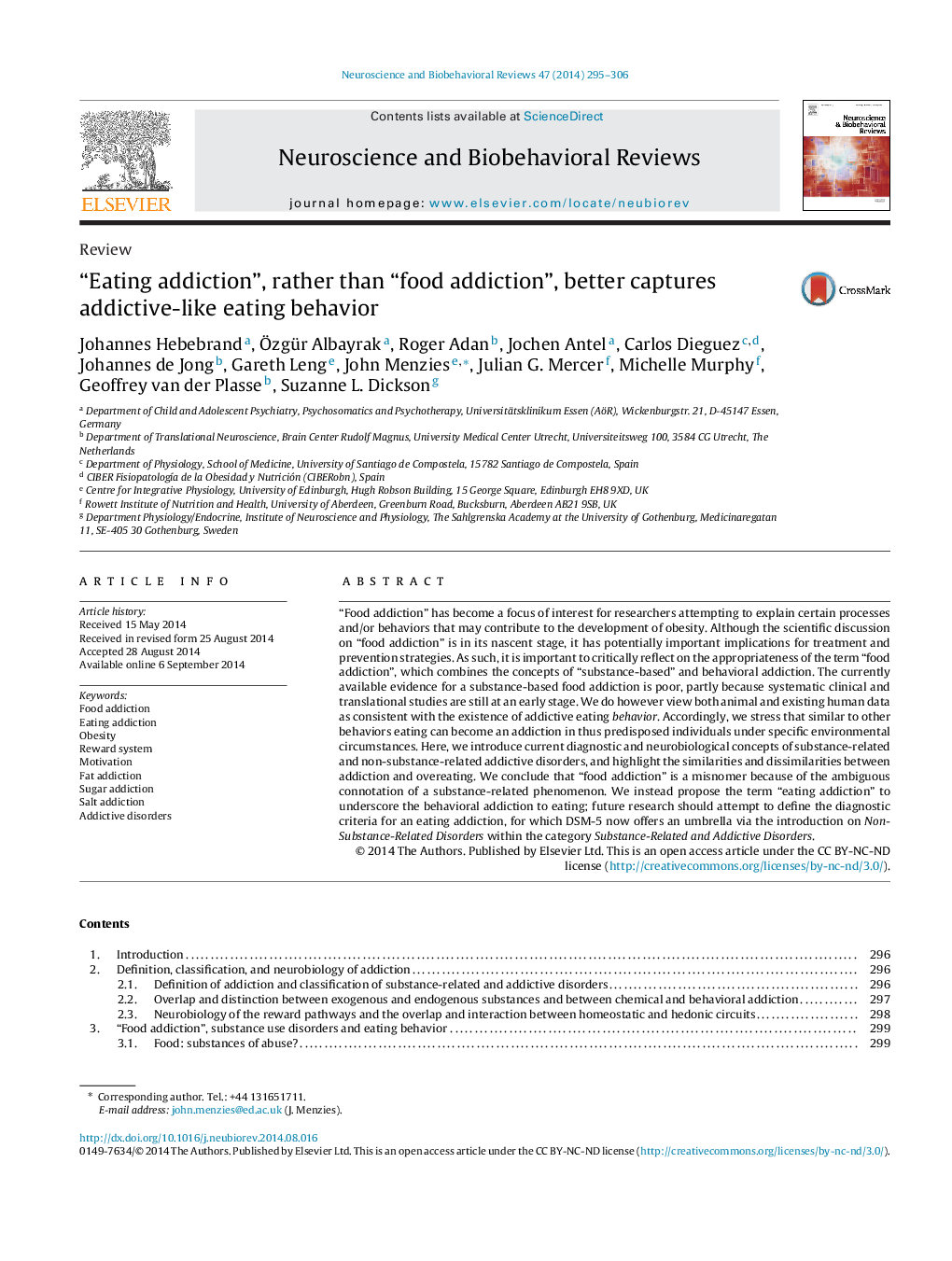| Article ID | Journal | Published Year | Pages | File Type |
|---|---|---|---|---|
| 7303789 | Neuroscience & Biobehavioral Reviews | 2014 | 12 Pages |
Abstract
“Food addiction” has become a focus of interest for researchers attempting to explain certain processes and/or behaviors that may contribute to the development of obesity. Although the scientific discussion on “food addiction” is in its nascent stage, it has potentially important implications for treatment and prevention strategies. As such, it is important to critically reflect on the appropriateness of the term “food addiction”, which combines the concepts of “substance-based” and behavioral addiction. The currently available evidence for a substance-based food addiction is poor, partly because systematic clinical and translational studies are still at an early stage. We do however view both animal and existing human data as consistent with the existence of addictive eating behavior. Accordingly, we stress that similar to other behaviors eating can become an addiction in thus predisposed individuals under specific environmental circumstances. Here, we introduce current diagnostic and neurobiological concepts of substance-related and non-substance-related addictive disorders, and highlight the similarities and dissimilarities between addiction and overeating. We conclude that “food addiction” is a misnomer because of the ambiguous connotation of a substance-related phenomenon. We instead propose the term “eating addiction” to underscore the behavioral addiction to eating; future research should attempt to define the diagnostic criteria for an eating addiction, for which DSM-5 now offers an umbrella via the introduction on Non-Substance-Related Disorders within the category Substance-Related and Addictive Disorders.
Related Topics
Life Sciences
Neuroscience
Behavioral Neuroscience
Authors
Johannes Hebebrand, Ãzgür Albayrak, Roger Adan, Jochen Antel, Carlos Dieguez, Johannes de Jong, Gareth Leng, John Menzies, Julian G. Mercer, Michelle Murphy, Geoffrey van der Plasse, Suzanne L. Dickson,
